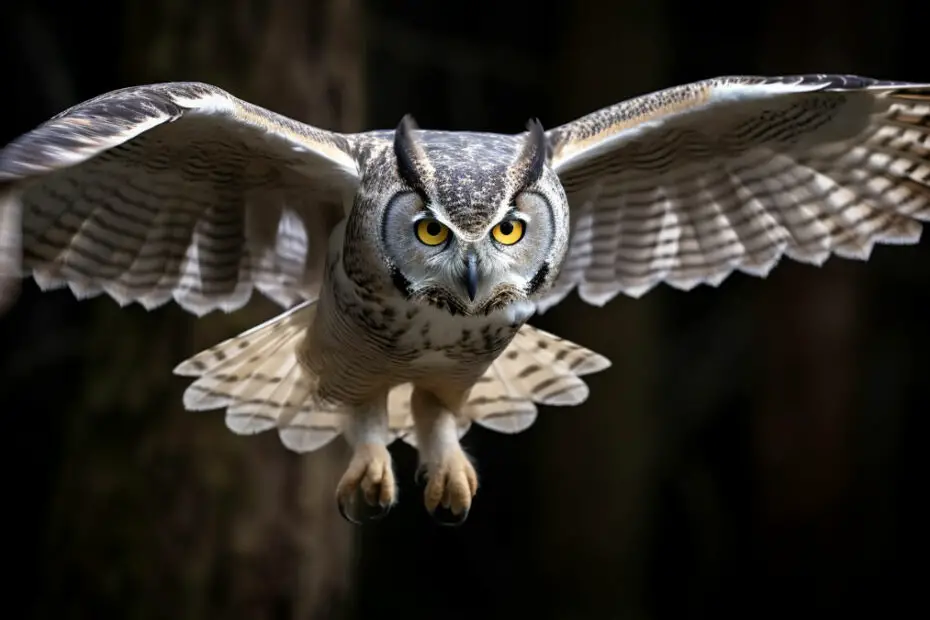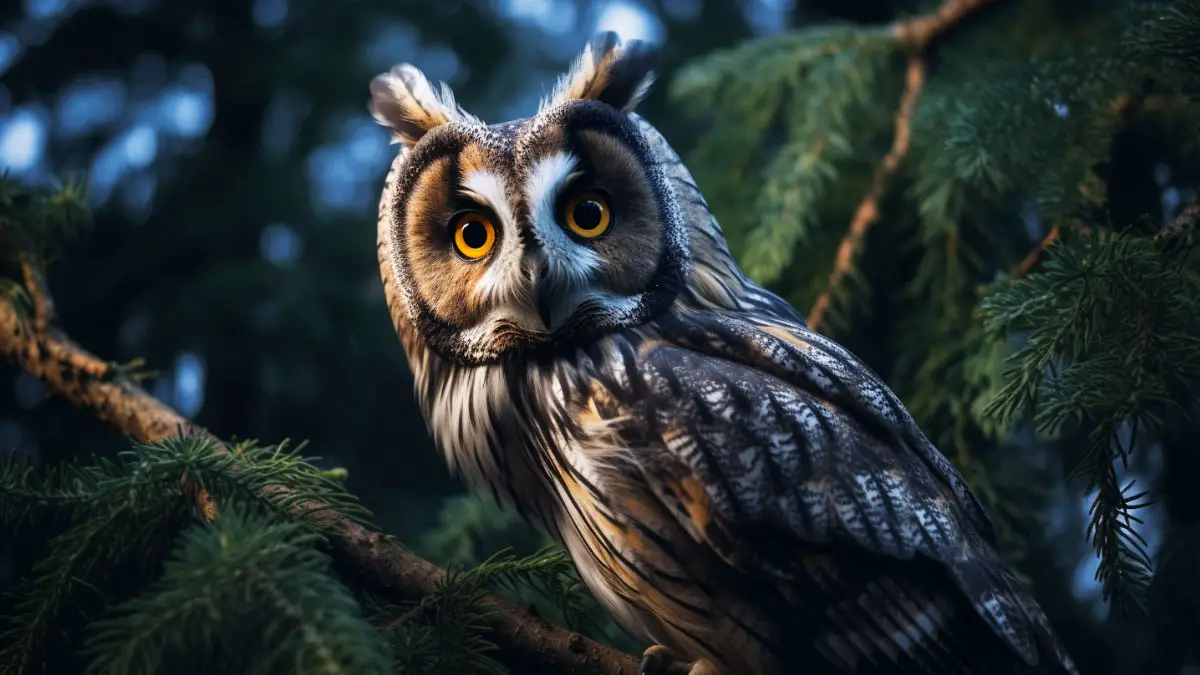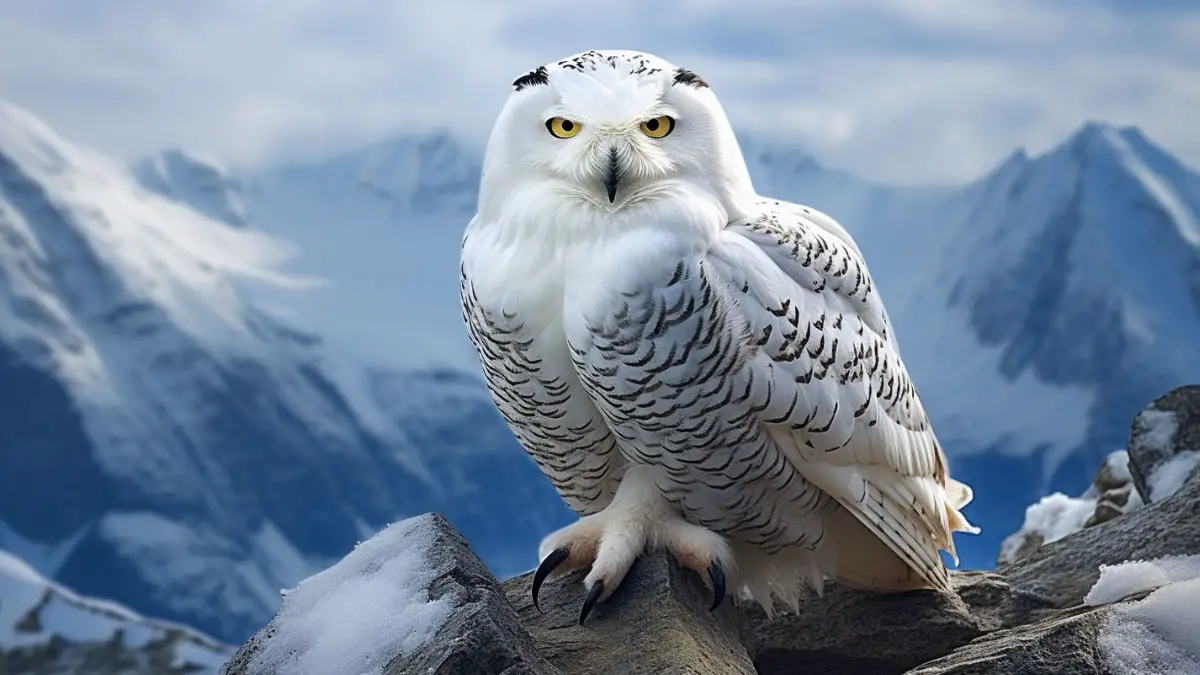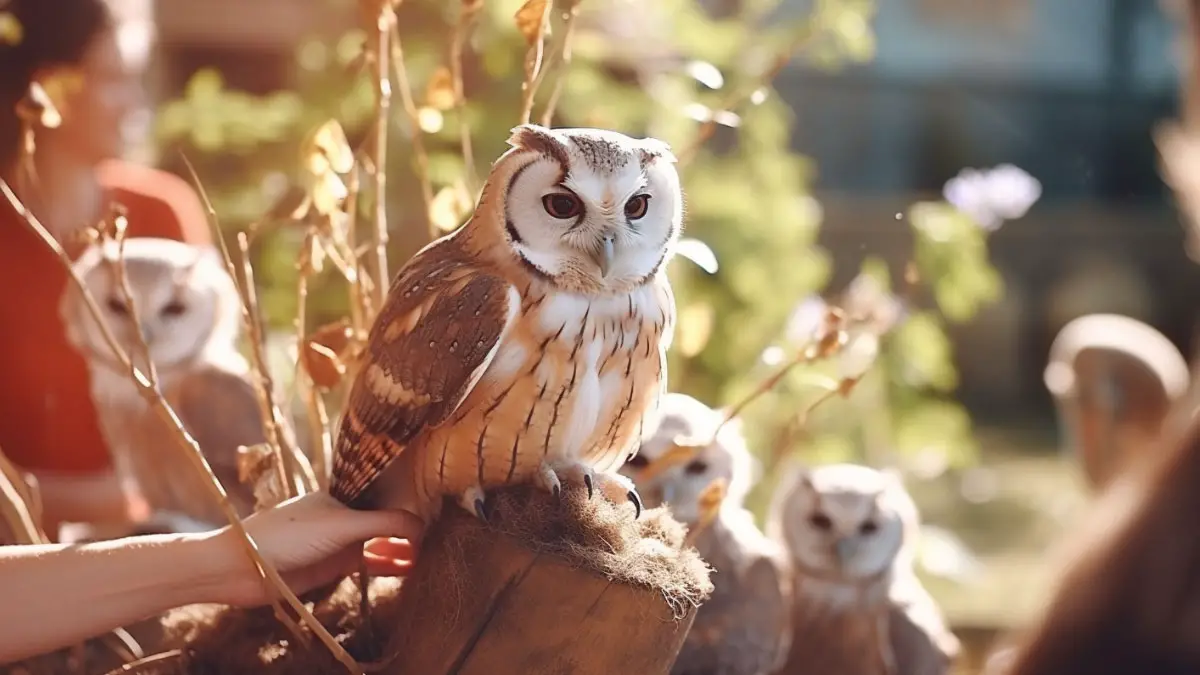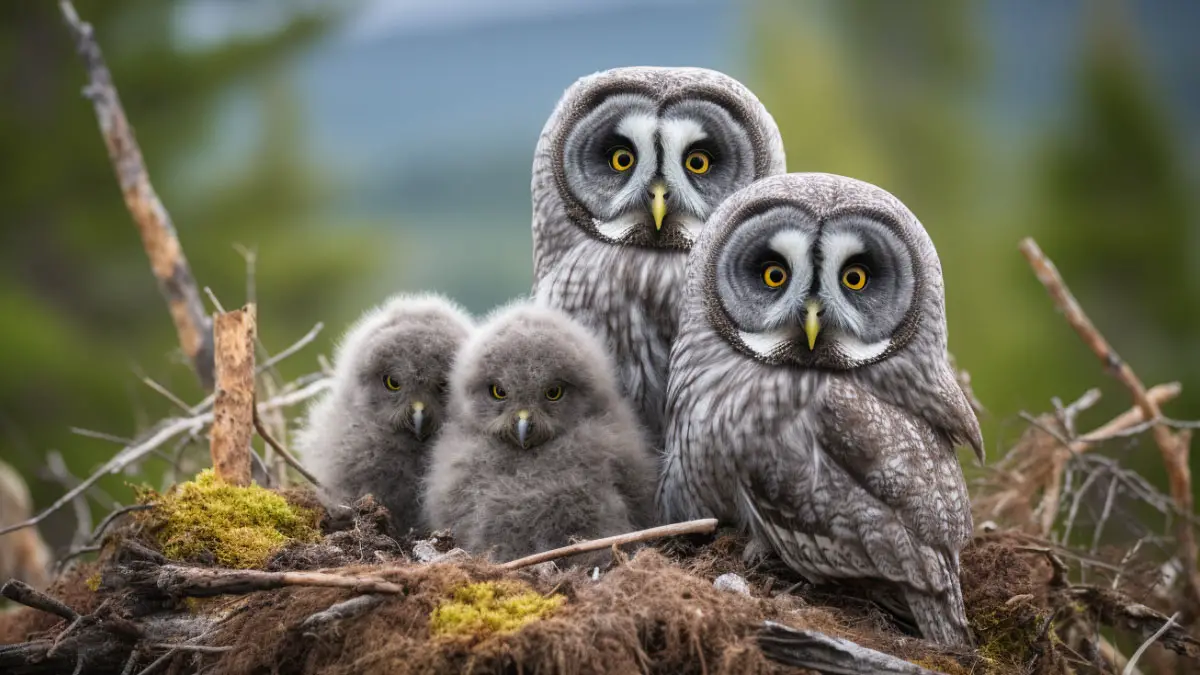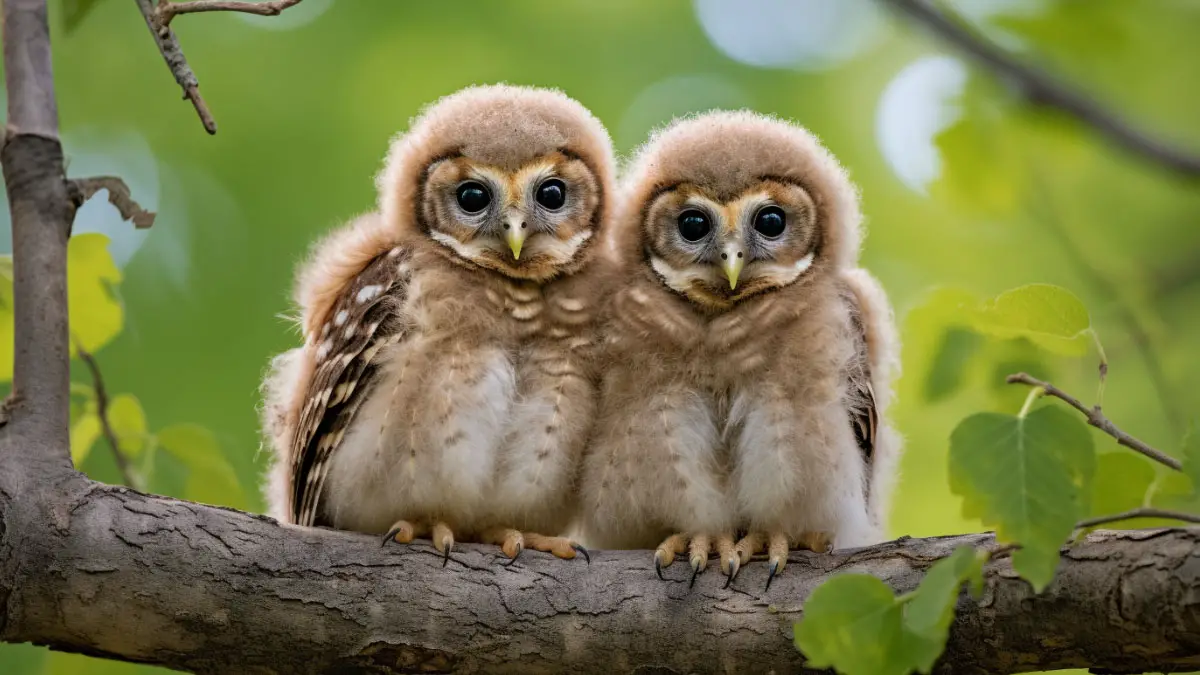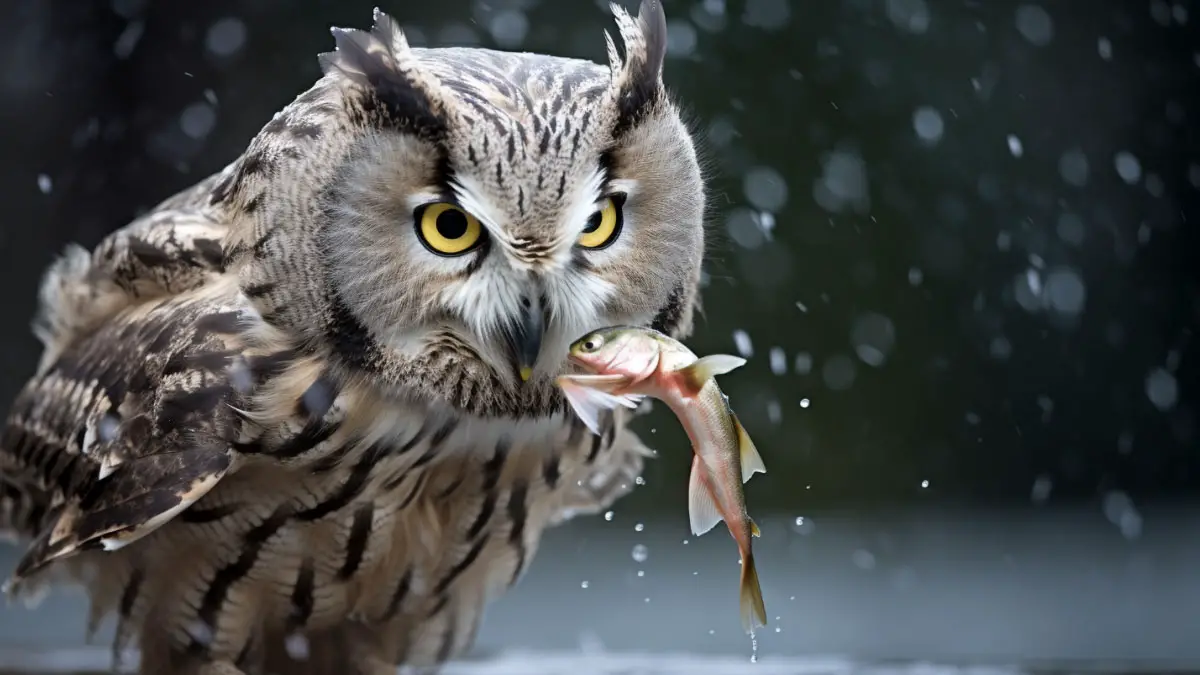From insects to rodents, the regular diet of owls is highly diverse. While owls are notorious for hunting small animals, many wonder whether owls are capable of preying on larger mammals like raccoons.
So, as wild diets, do owls eat raccoons? Yes, some larger owl species, such as the great-horned owls, eagle owls, snowy owls, and barn owls, can hunt and eat raccoons. All owls are carnivores, so they eat raccoons as a source of meat if available. However, smaller owl species, like burrowing owls, can’t hunt raccoons due to their small size.
Let’s dive into the world of owl diet and find out how often raccoons end up on their plates.
What Owls Eat Raccoons? – 6 Common Species
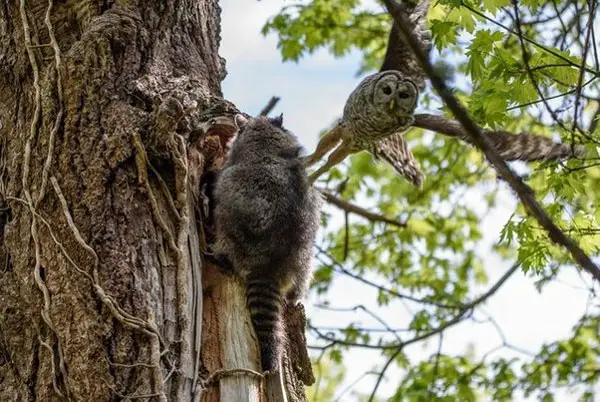
Studies have shown that owls even scavenge on dead raccoons. However, raccoons are small- to medium-sized mammals that are larger than the common prey of owls. Therefore, only the largest owls are capable of hunting them. Here are some owl species that often eat raccoons:
1. Great Horned Owls
One of the largest and most aggressive owl species, great horned owls are the most notorious predators of raccoons. They can carry larger mammals such as skunks, cats, raccoons, and even dogs.
Great horned owls are known to lift large animals weighing 8 to 10 pounds. Adult raccoons typically weigh 10 to 20 pounds, whereas baby raccoons are less than 1 pound. Therefore, these owls are often seen to hunt both juvenile and adult raccoons.
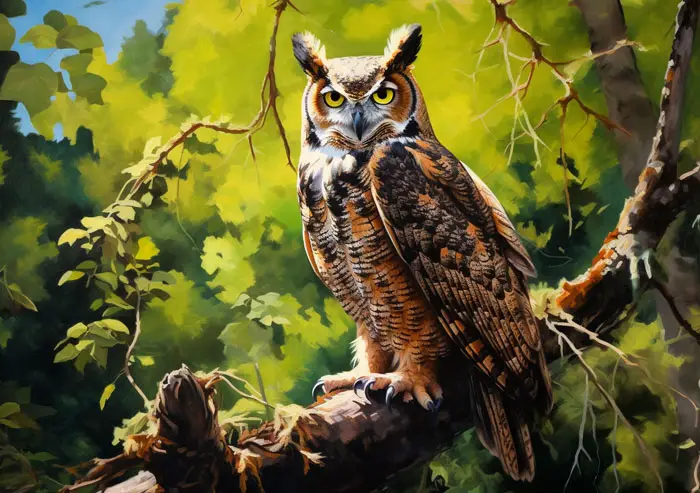
2. Eagle Owls
Another large owl species that is capable of carrying raccoons is the eagle owl. They are known for hunting other owls, dogs, rabbits, skunks, and even small deer. Typically, eagle owls can pick up 5 to 9 pounds. So, they will attack small adult raccoons when hungry.
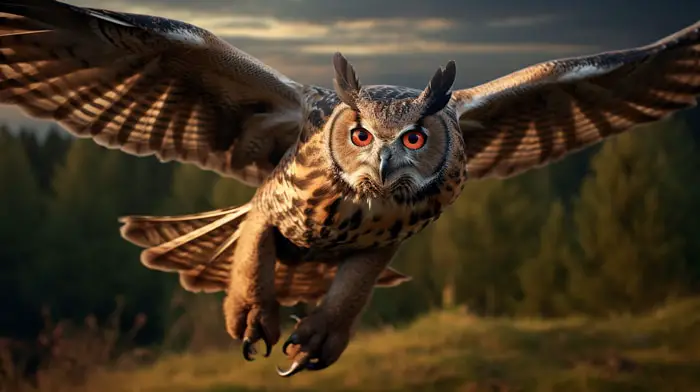
3. Great Grey Owls
Similar to great-horned owls, great gray owls are also aggressive predators. They will eat anything available for preying within their range.
However, these owls are medium-sized and can’t lift a full-grown raccoon. When the situation is right, great gray owls will hunt baby raccoons weighing 5 to 7 pounds.
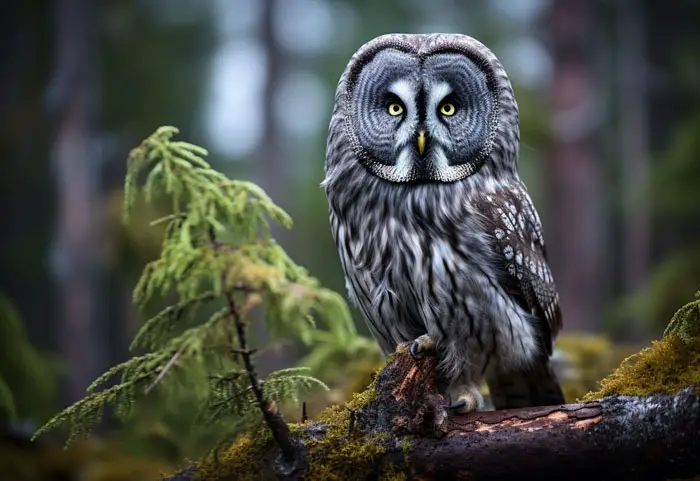
4. Barn Owls
Although barn owls prefer staying away from large and medium-sized animals like raccoons, they will hunt and eat raccoons when confronted.
While they can’t prey on larger raccoons, baby raccoons are lightweight enough for barn owls to lift.
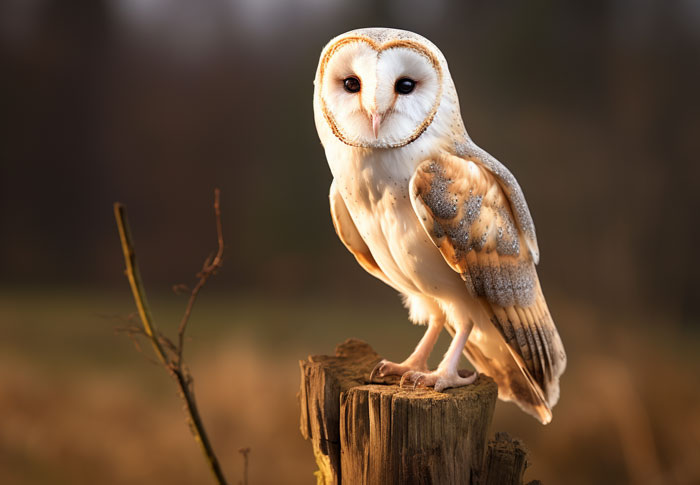
5. Spotted Owls
With their 40-inch-long wingspan and sharp talons, spotted owls are another large species capable of taking away juvenile raccoons. They are less aggressive but can prey on raccoons when hungry.
These owls are found in North America, and they can lift animals three times heavier than their weight.
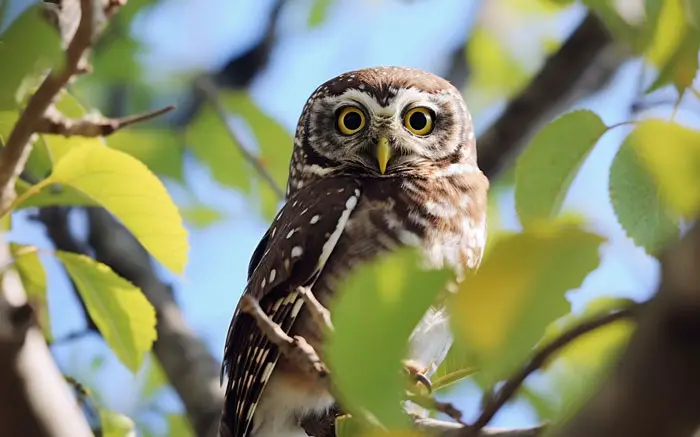
6. Snowy Owls
Widely found in North America, snowy owls are among the heaviest owl species, weighing up to 6 pounds. Due to their large size and efficiency in hunting, snowy owls can easily confront full-sized raccoons. Snowy owls might also scavenge on dead raccoons.
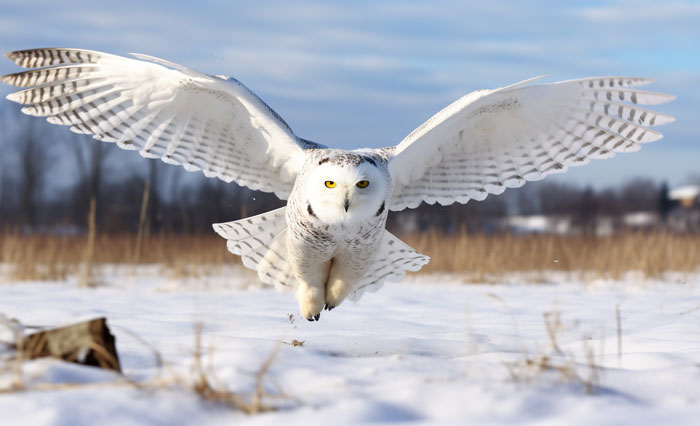
When Do Owls Eat Raccoons? – Factors They Consider
Although owls are capable of hunting raccoons, they aren’t a common item on an owl’s plate. Owls prefer to hunt smaller animals such as rodents, rabbits, voles, mice, small birds, snakes, etc. An owl will go for a raccoon if these factors are available:
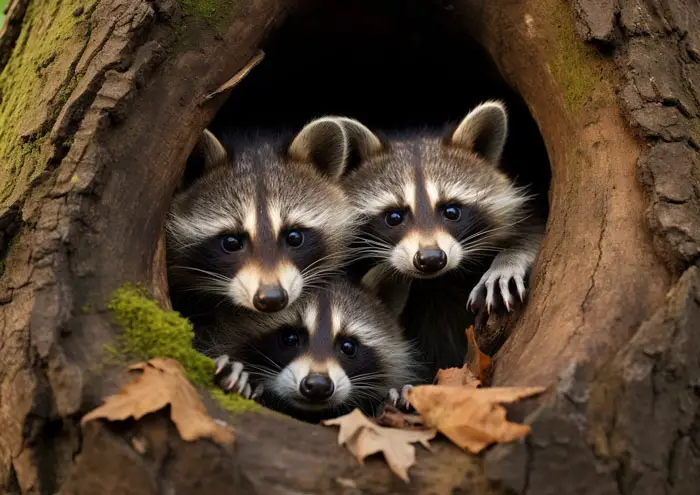
The Raccoon Is Within Reach
Owls are opportunistic predators, and they will eat anything within their reach. So, when a raccoon isn’t guarded or comes too close to the owl, the owl will attack it. Similarly, owls can eat dead raccoons when available within their territory.
When the Owl Is Hungry
If the owl hasn’t eaten for a long period, it will take a chance on larger prey like raccoons. Owls only eat meat, so feeding on easily attainable plant materials isn’t an option. Therefore, they will hunt raccoons that might be easy to capture in certain situations.
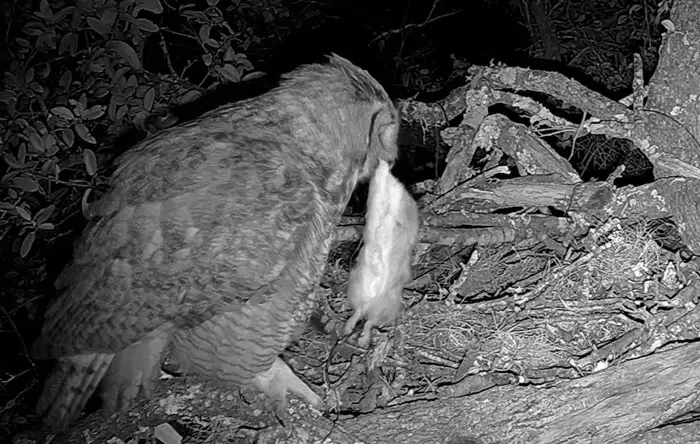
If the Raccoon Attacks Owl Nest
In general, any owl will stay away from animals double their size. However, when attacked, owls will surely fight back to protect themselves.
Raccoons are omnivorous, opportunistic hunters. They are notorious for attacking bird nests. If a raccoon attacks an owl nest, the owl will use its sharp beak and talons to shield the nest. Eventually, the owl might kill the raccoon and feed on its flesh.
Scarcity of Other Preys
As mentioned, raccoons aren’t the primary food source of owls. However, in the urban areas and during the winter season, there might be a scarcity of their regular prey.
In this case, an owl will be interested in hunting raccoons, especially the smaller ones. Owls prefer baby raccoons as they are more vulnerable and defenseless.
FAQs
Now, let’s address some common queries you might have regarding owl’s diet and their relationship with raccoons.
Owls are less likely to attack raccoons during the day as most owls are nocturnal. Great horned owls, snowy owls, and eagle owls that prey on raccoons hunt at night. However, some owl species (northern pygmy and hawk owl) are diurnal, but those are smaller and prefer to avoid raccoons.
Yes, raccoons are afraid of larger owls that prey on them. Great horned owls are the natural predators of raccoons, so they stay away from owls. In fact, many homeowners use decoys or fake owls to deter raccoons from entering their properties.
No, Scops owls don’t typically eat raccoons as they are way smaller than raccoons. Scops owls weigh only 0.35 pounds, whereas adult raccoons can weigh up to 20 pounds. Also, Scops owls don’t primarily feed on animals and prefer to eat insects instead.
Bottom Line
The answer to ‘Do owls eat raccoons’ isn’t straightforward. Some owls eat raccoons when the situation is in their favor, while others avoid raccoons. Great horned owls are the most common natural predators of raccoons. They will attack and swallow both juvenile and adult raccoons.
However, owls will only eat raccoons if other food sources aren’t available. Also, the raccoon must fight the owl if it’s anywhere inside the owl’s territory. In any case, if a dead raccoon is available, any owl species will have them, no matter the size.
